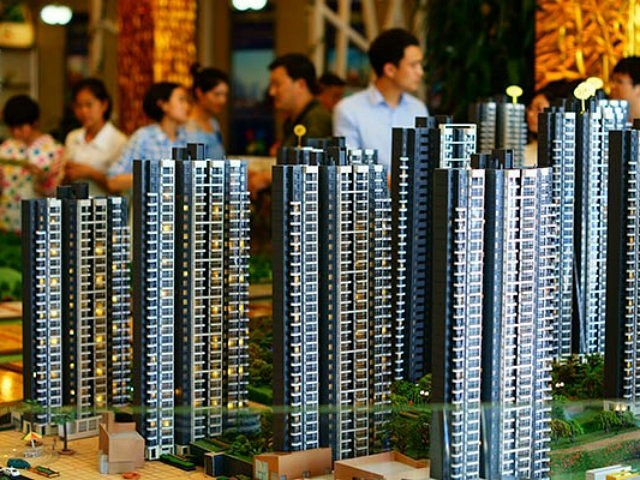Chinese real estate billionaire Wang Jianlin told CNN Money on Thursday that his country’s real estate market has become the “biggest bubble in history.”
“I don’t see a good solution to this problem. The government has come up with all sorts of measures – limiting purchase or credit – but none have worked,” Wang warned.
His own investment group has been shifting resources away from real estate, and into entertainment, sports, and tourism — prominently including the acquisition of Hollywood studio Legendary Entertainment, movie theater chain Carmike Cinemas, and possibly soon Dick Clark Productions. CNN notes his big dream is to buy one of the “Big Six” movie studios, like 20th Century Fox or Universal Pictures.
The problem with China’s real estate, as Wang sees it, is that too many properties in smaller cities are unoccupied, while big-city prices skyrocket, creating a great deal of consumer debt — about $3.6 trillion in U.S. dollars. He thinks the Chinese economy is still too weak from last year’s stock market crash to deal with the debt bubble.
“China has a love-hate relationship with the real estate market. Recently it tried to cool the overheated market in large cities with restrictions on home sales, even punishing property agents who hype the market,” Business Insider reports. “Still, the government’s efforts haven’t slowed the market much, with property sales growing 31.8% in August compared to a year ago.”
Back in April, Forbes hypothesized that the Chinese housing bubble hasn’t burst because the government maintains such tight controls over the market, using everything from regulations to interest rates to manipulate construction and real estate sales.
A critical feature of the Chinese market is that “the conditions which caused the U.S. housing crash in 2008 simply don’t exist in China, as things like sub-prime mortgages and mortgage backed securities are either prohibited, or are otherwise not very widespread.”
That is because Chinese home buyers must make enormous down payments — 30 percent for a first home, up to 50 percent for a second, and it can be even higher when the government wants to cool the housing market down. Qualifying for a loan can be very difficult. In fact, citizens are actually classified as “home buyers” or “non-buyers,” and only by meeting certain conditions, such as paying income tax in a particular area for several years, can a “non-buyer” become a “buyer.”
It is interesting that the American Left, which so resolutely admires Chinese authoritarianism in many other social and economic spheres, remains wedded to the idea that “social justice” equals easy loans, and increasing home ownership will conjure prosperity from thin air.
At any rate, Wang would seem to disagree with Forbes’s contention that the Chinese market is immune to bubble-popping, or at least cushioned against the effects. The Chinese stock market crash was supposed to be impossible, too.

COMMENTS
Please let us know if you're having issues with commenting.